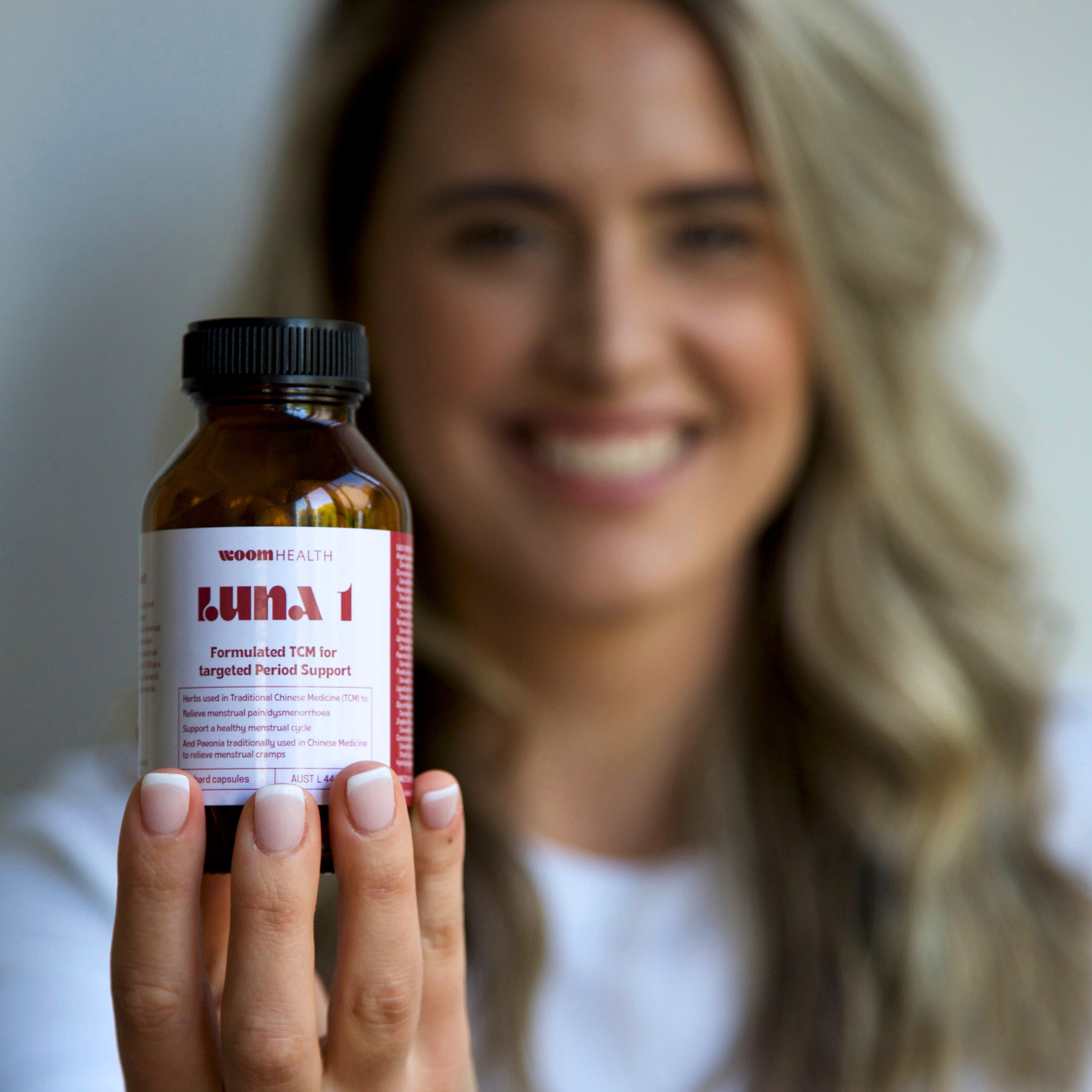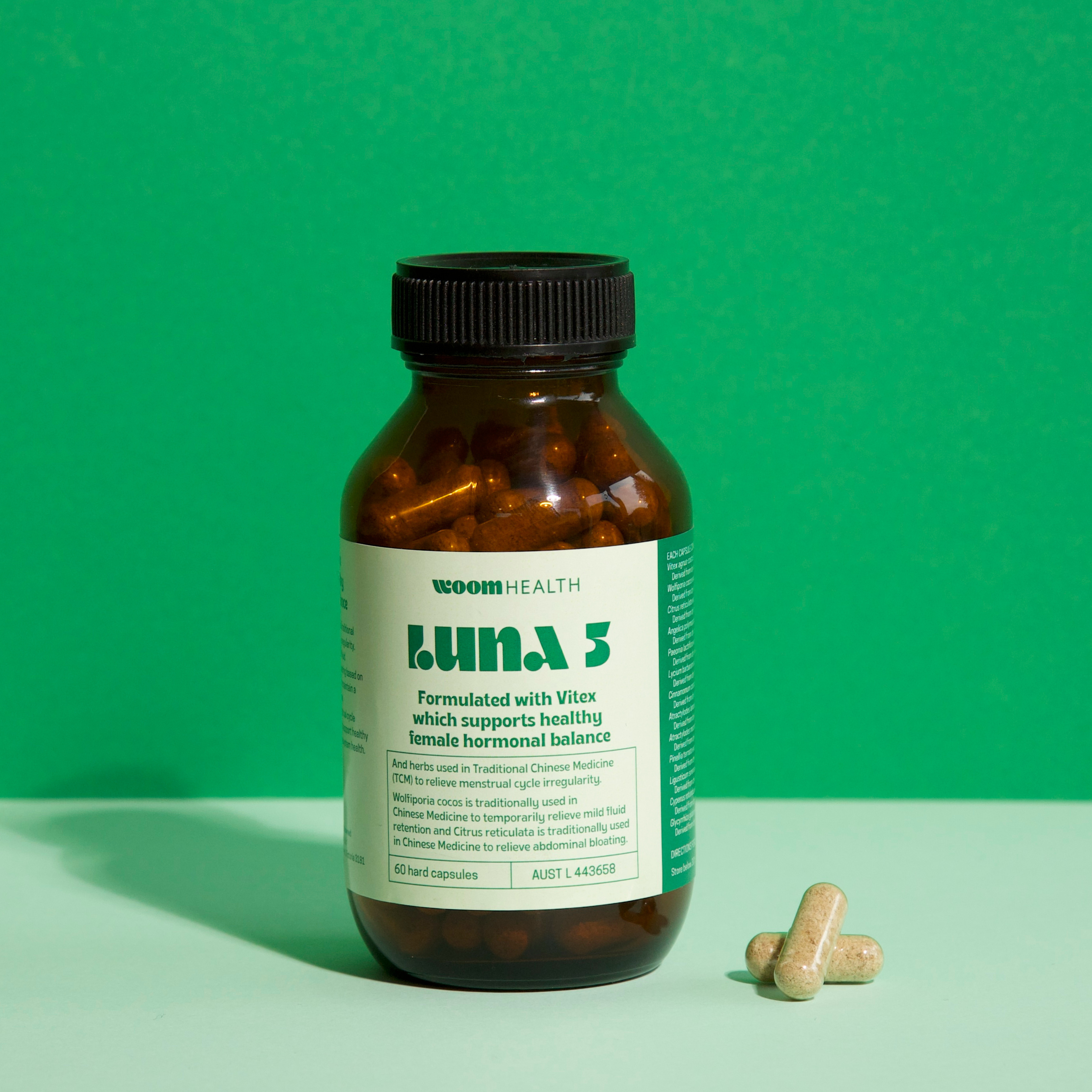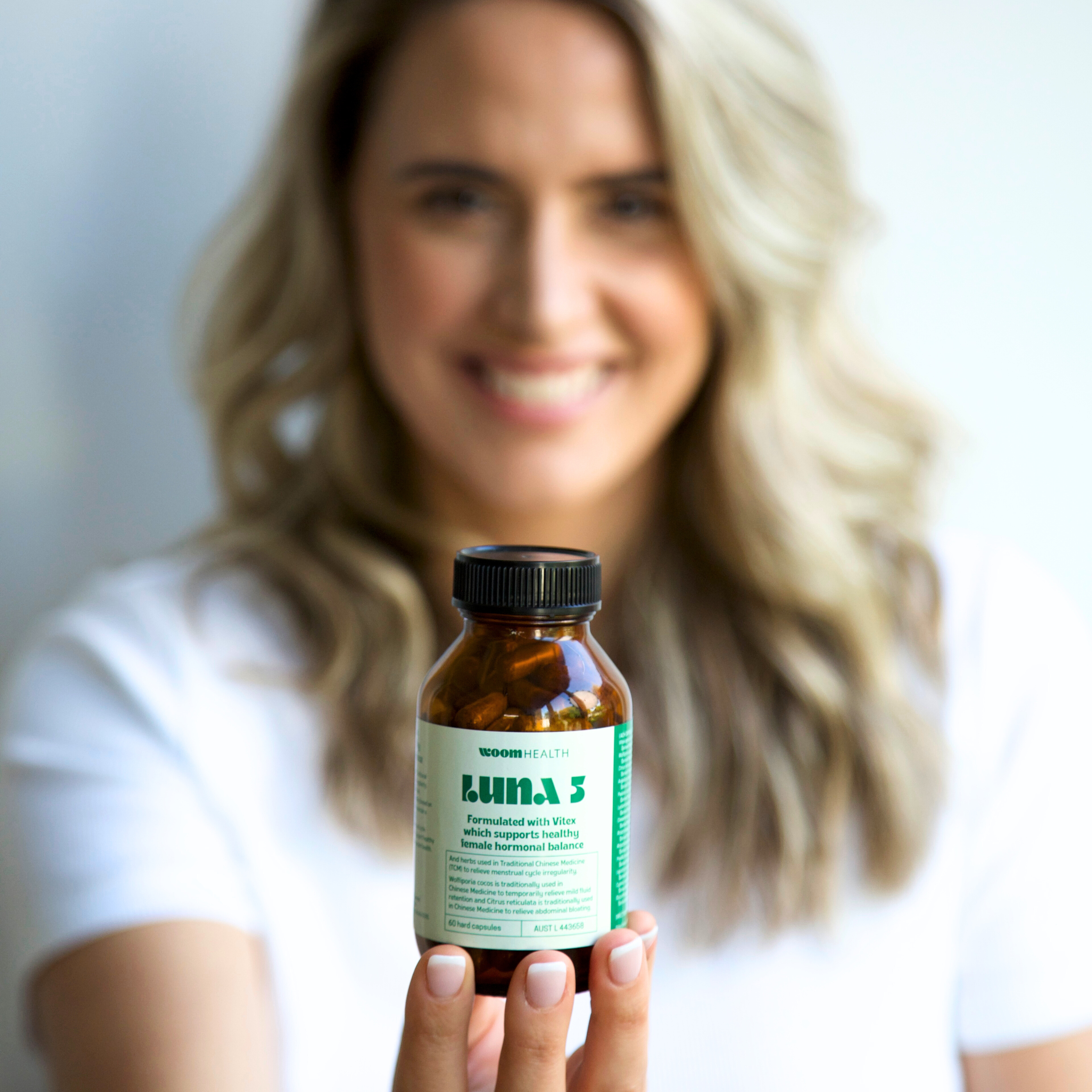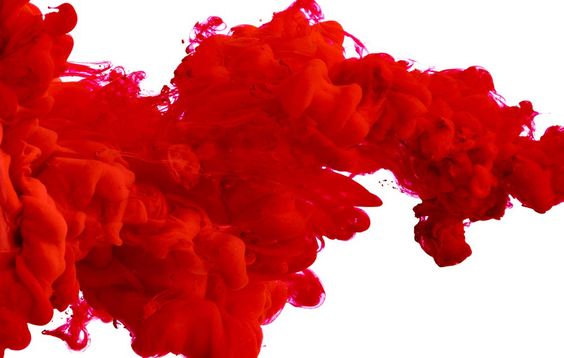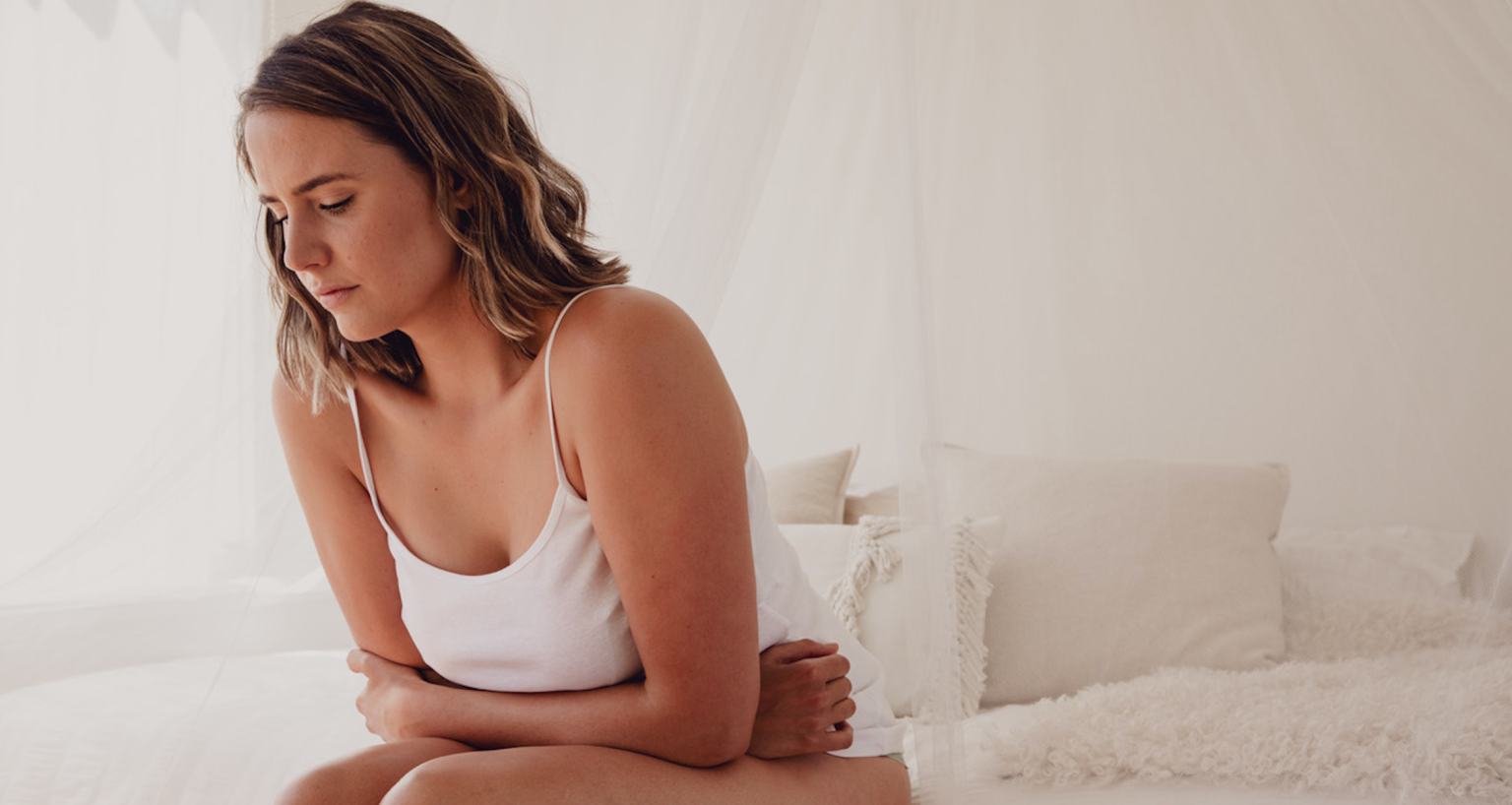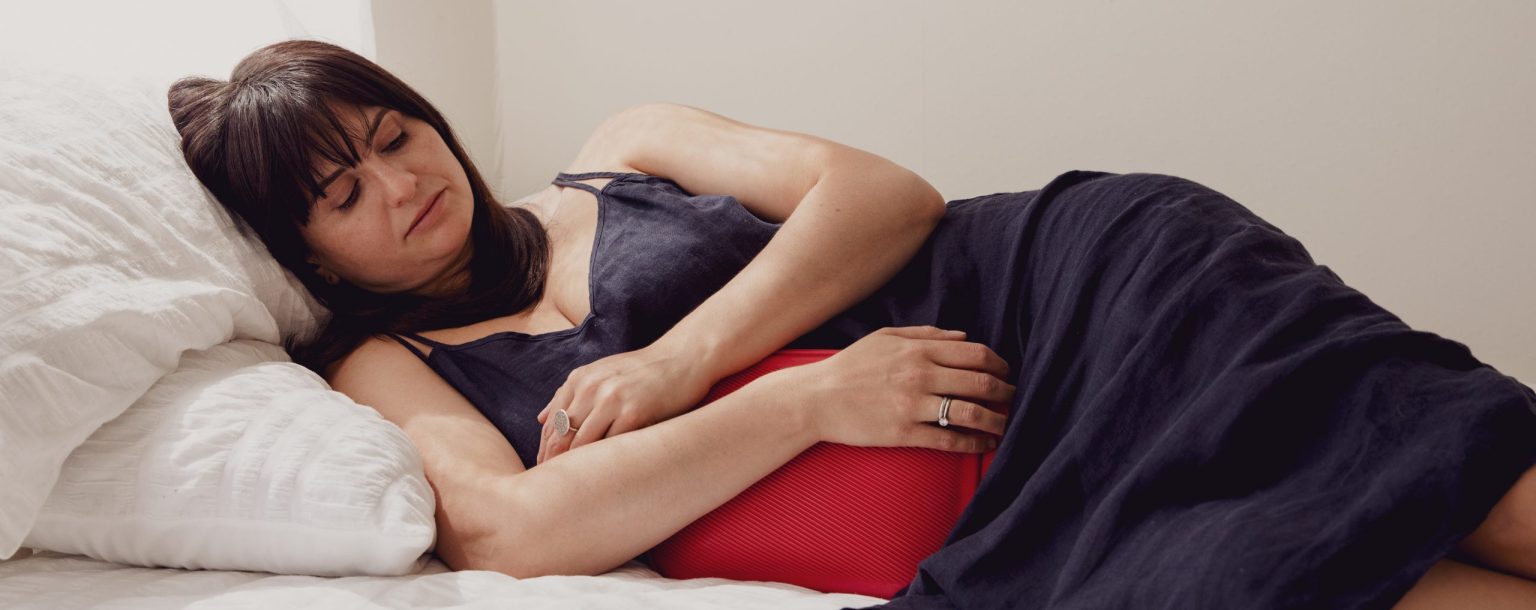How to use the Moon's Energy to balance an Irregular Menstrual Cycle

Do you feel like your menstrual cycle has a mind of its own?
According to Traditional Chinese Medicine, the normal length of a menstrual cycle is 26-35 days long. A balanced cycle that is in rhythm with your body will be about the same length each month. Small changes in your cycle are normal, but if it is unpredictable or continuously falls out of the normal range, consider this irregular.
Your body and your menstrual cycle are connected to the rhythms found in nature like the seasons, the moon, the lunar cycle, and the tides. For centuries women have understood this connection. But in our modern era, more women have been out of sync with nature and out of sync with their cycles than ever before.
This lost connection could be the cause of most women’s irregular menstrual cycles and gynaecological conditions. So it’s time to sync up with your cycle and find balance!
why is it important to balance your cycle?
Irregular cycles usually have an underlying cause.
Some gynaecological conditions, like polycystic ovary syndrome (PCOS) or fibroids, can cause irregular cycles as well as stress, over-exercising, or taking certain medications. Irregular cycles could also mean your body or hormones are out of balance.
You should always investigate the underlying cause of your irregular periods with a doctor. But there are also a few ways you can connect with your body and balance your cycle.
Research has been telling us that men follow a 24-hour cycle – a circadian rhythm – based on the cycle of the sun, and women follow a circadian rhythm and an infradian rhythm based on the lunar cycle of the moon.
Women are the most aligned with their bodies and feminine energy when their menstrual cycle corresponds with the moon. Syncing your menstrual cycle with the moon means you would menstruate around the new moon and ovulate around the full moon.
If your menstrual cycle keeps you guessing, you can use the moon’s energy to help regulate it and bring it back into balance.
Yes, you read that right…you can use the moon!
light, melatonin, and reproductive health.
There are many studies that show how light, and lack of light, affect your body’s natural rhythms.
Light pollution, sleeping with a light on, and even blue-light emitted from TVs and cell phones in the later part of the day can disrupt your body’s natural sleep cycle.
This is all because of a small, pea-shaped gland in your brain called the pineal gland. This gland produces, secretes, and regulates some hormones in your body. This includes melatonin, a hormone crucial for regulating circadian rhythms and sleep patterns.
Your pineal gland produces melatonin in response to darkness, and light suppresses this production.
It gets a little deeper from here! The hypothalamus gland in your brain is equipped with many melatonin receptors. It is the gland that helps your body achieve homeostasis. Even more so, it collaborates with your pituitary gland to keep your emotions, temperature, blood pressure, and endocrine system in balance.
Melatonin production by the pineal gland is extremely important to the well-being of your whole body! Without enough melatonin, your hypothalamus won’t be able to optimally perform. This will impact your endocrine system and your menstrual health.
Who knew sleeping with or without a light on could do so much!
Want to know how you can use light to help balance your irregular cycle? Below are a few ways you can get your cycle back on track.
use lunaception to sync your menstrual cycle with the moon cycle.
Did you know that you can trick your body into thinking you are sleeping in moonlight?
The concept of lunaception was developed by Louise Lacey in 1974. She describes the method in her book, “Lunaception: a feminine odyssey into fertility and contraception”. In this method, a small amount of light is used to sync the menstrual cycle with the moon’s lunar cycle. The idea is that through lunaception, women can menstruate on the new moon and ovulate on the full moon.
Louise developed this technique after she realized the Pill stopped the natural rhythm of her body. When she stopped taking hormonal contraception, she noticed her cycles were very irregular.
She found research that suggested some primates increase their sexual activity during certain phases of the lunar cycle. This caught her interest. Louise wondered if the moon had an effect on human reproduction and if artificial light disrupts the moon’s effect.
She experimented sleeping with different variations of light. She alternated between sleeping in total darkness for some nights of her cycle and with a light on during other nights.
Her results?
She found that sleeping in total darkness, except for 3 nights during the full moon when she slept with a small amount of light, would trigger ovulation and balance her cycle.
She avoided sex on the three days that she slept with a light on and also found lunaception to be an effective way to avoid pregnancy. Of her friends who tried her method of lunaception, 27 of them also found the same results.
Ready to give it a try? Here’s how to start. At night when you go to bed, block all light from your room. You should be sleeping in total darkness. And by total darkness, we mean that if you can still see your hand after fifteen minutes of turning off the lights, it’s not dark enough.
You can buy black-out curtains to keep your room dark if you live in a city apartment or if street lights shine through your window. You can also place a towel over the crack in your door to block any light coming through.
On the 3 brightest days of the full moon (the day before the full moon, the day of the full moon, and the day after the full moon) sleep with a small amount of light shining nearby. You can use a nightlight or string lights, or have hallway or bathroom light shine into your room.
Using this method, your menstrual cycle may sync with the lunar cycle and your 3 most fertile days will be those 3 days of the full moon.
moon bathing to connect with your feminine energy.
Time to step outside and become a moon goddess!
Moon bathing is believed to relieve anxiety and promote relaxation and help the production of melatonin.
Traditional Chinese Medicine and Ayurveda Medicine suggest a “moon bath” to soak up the moon’s energy and help you connect with your body, enhance fertility, and balance the menstrual cycle.
What exactly is moon bathing? Moon bathing is the practice of sitting, standing, or lying down underneath the moon to soak up the moon’s light as you would if you were sunbathing.
There’s no real right way to do it and it’s whatever feels comfortable to you, but here are a few tips:
- Dress for the weather and find an area where you have a clear view of the sky.
- Bathing in moonlight is easier in places that aren’t full of light pollution. If you can’t go outside, make sure all lights are off in your home and moon gaze from a window.
- It’s recommended to spend at least 15- 30 minutes soaking in the moonlight during the full moon.
- If you don’t want to sit or lay down, take a relaxing walk in the moonlight.
- You can create a relaxing atmosphere with candles and music and practice deep breathing or meditation if you wish.
Many women in ancient cultures would gather and bathe under the light of the full moon to strengthen their creativity, fertility, and emotions.
As you soak up the moonlight, don’t be afraid to express your feminine energy through your creativity!
tap into your own inner light.
Your cycle flows parallel with the lunar cycle. Every month there is an opportunity to feel the ebb and flow of the moon. Feel it and let it teach you about your own inner ebb and flow of darkness and lightness, emptiness and fullness.
As you learn to work with the moon’s energy and with light to balance your irregular cycle, may you also open up your own inner energy and light that’s inside you!
share your story with your menstrual cycle and the moon!
- What is your experience with irregular periods?
- Have you ever tried lunaception or moon bathing before? What were your results?
Get social & follow us for the latest on your gynae health.

